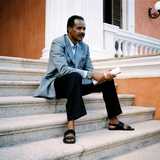Report / Eritrea
Isolated case
Having fought with most of its neighbours, Eritrea has few friends. And offers of help from the West are turned away as the president believes aid does more harm than good. But meanwhile people starve and flee abroad.
Leaning forward in his chair, President Isaias Afwerki, the man who has led Eritrea since it won independence in 1993, jabs his finger at Monocle. “We don’t need you,” he says.
There is an element of grandstanding to his remark, but then his message is not just for Monocle. The interview in Afwerki’s presidential villa is being filmed and will air later that day on EriTV, Eritrea’s state television channel – its one and only television channel. It is his way of showing his people that he is standing up to the West. (The EriTV highlights will also include him angrily accusing Monocle of working for British Intelligence, MI6.)
The remark also neatly sums up Eritrea’s view of the world around it. A small country of 5.5 million people perched on the tip of the Horn of Africa, Eritrea is surrounded by enemies – mainly of Afwerki’s own making. To the west lies Sudan, where Eritrea has supported numerous rebel groups, while to the east they are engaged in a seemingly pointless border skirmish with Djibouti. The biggest enemy is due south. Eritrea fought for 30 years to gain its independence from Ethiopia and a subsequent war over the border killed more than 100,000.
Further afield outsiders’ views of Eritrea do not get much better. The UN Security Council agreed to impose sanctions on Afwerki’s regime last December and the US has warned it may be a state sponsor of terrorism. Eritrea’s only known ally is Qatar. Not that the president thinks it matters. “It is a sign of weakness to have allies,” he insists.
Closed off to the rest of the world Eritrea has tried to make a virtue of its isolation. On a continent where the debate over the advantages of aid are becoming more heated, Eritrea has chosen to forego offers of assistance. Only a handful of non-governmental organisations are allowed to work there and their scope is extremely limited. A World Bank loan of $100m (€73m) was rejected in 2005 and while all other countries in the Horn of Africa appealed for emergency food assistance following a devastating drought last year, Eritrea refused access to the World Food Programme.
Afwerki admits that living in Eritrea is a “struggle” and a “hardship” but claims that “charity does not work”.
His view of aid reflects, in the extreme, a growing theory that aid to Africa can cause more problems than it solves. In her book Dead Aid, Goldman Sachs economist Dambisa Moyo called for all development aid to Africa to be cut, arguing that countries become “aid dependent” and their economies fail to grow. Afwerki claims his experiment is working and points to impressive health indicators. Life expectancy in Eritrea is almost 62, higher than 41 other countries in Africa including economic powerhouses such as South Africa and Ghana. According to a report by IRIN, the UN news agency, maternal, child and infant mortality rates fell by a third from 1995 to 2005. The infant mortality rate is now the 10th lowest on the continent. Immunisation coverage has improved from one of the worst in the developing world to one of the best.
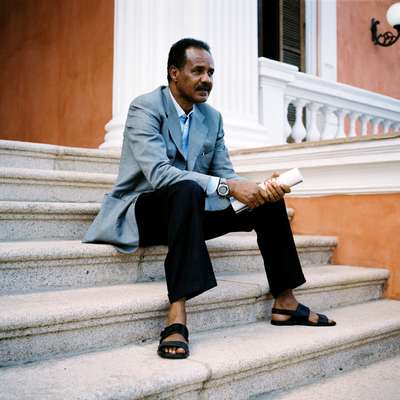
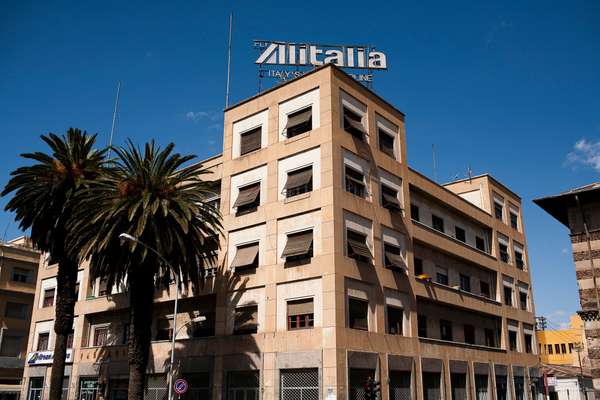
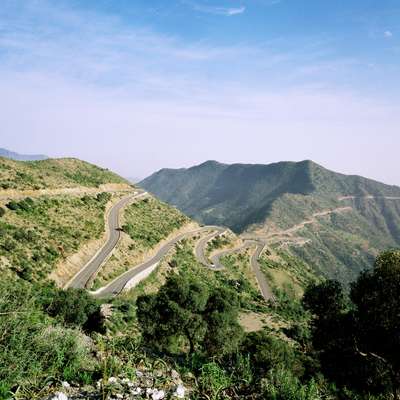
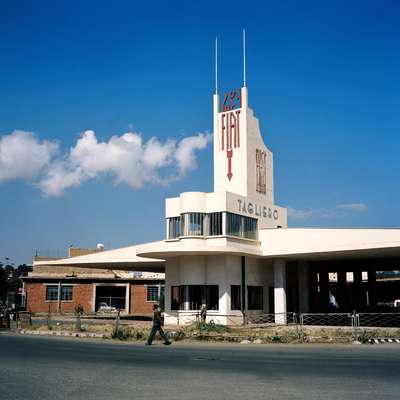
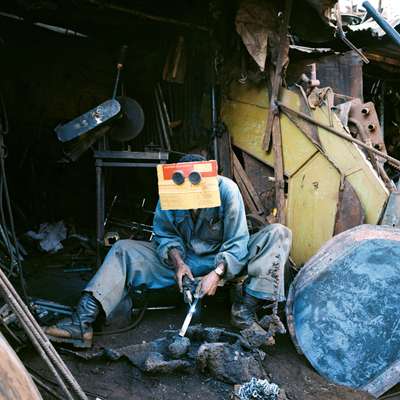
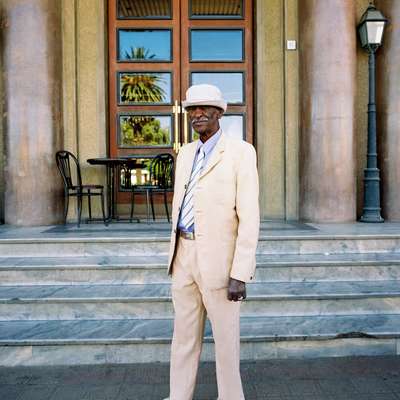
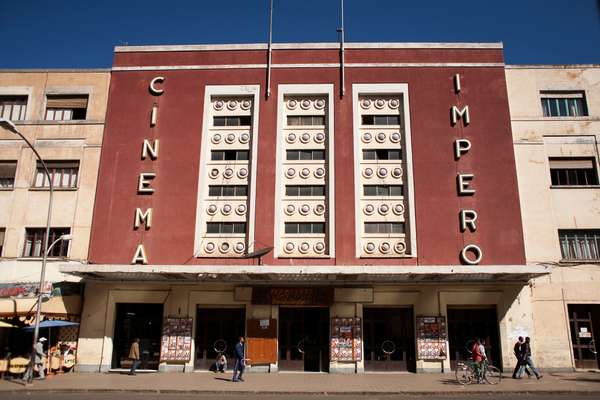
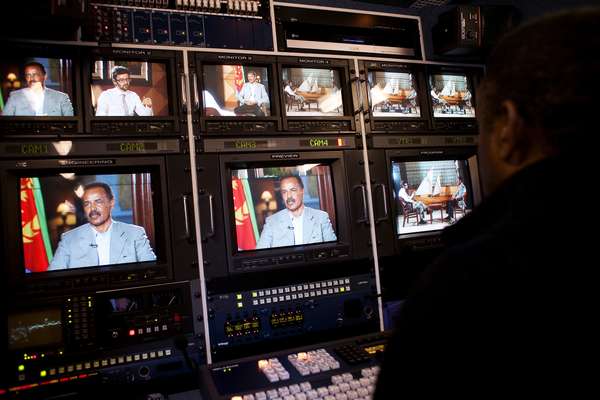
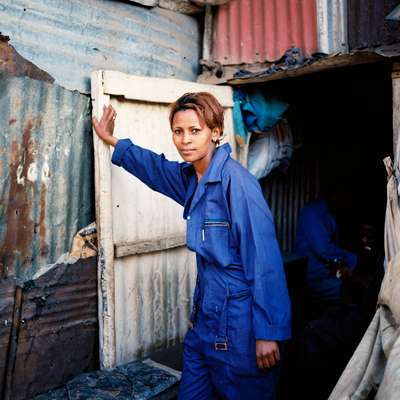
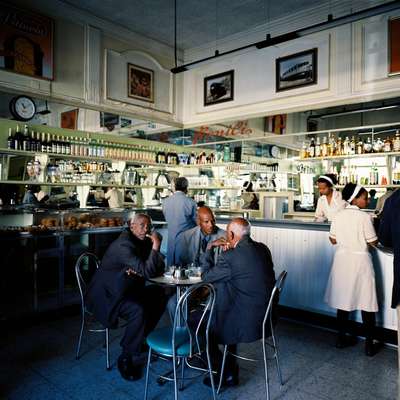
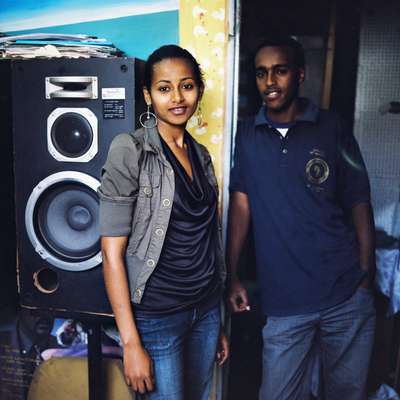
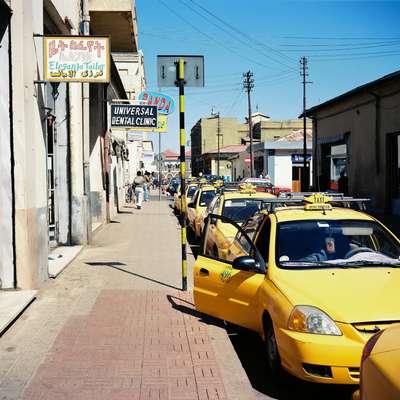
But the refusal to accept food aid has been damaging. The UN Development Programme estimates that two thirds of the population live in poverty, while the UN’s Food and Agriculture Organisation believes that a similar number are undernourished. “The idea that a modern state in Africa can be self reliant when you are as poor as Eritrea is absurd. They have cut off their nose to spite their face,” says Michela Wrong, author of a book about the country, I Didn’t Do it For You.
The desire for self-reliance is based on more than a century of abuse from successive colonial masters. From the Italians to the British to the Ethiopians, Eritrea has had to fight for its independence without any outside help. “It is part of our culture,” Afwerki says. “If I want to build a house, how do I do that? Someone cannot come and provide it for me. I will have to make it out of my toil.”
Medeber is the epitome of that culture. A sprawling market on the outskirts of Asmara, it is filled with every type of junk imaginable. Scores of men, women and children spend their days turning seemingly useless bits of metal into everyday items. Down one dusty alley there are dozens of piles of car parts. Turn a corner and there are old metal doors, iron bed frames and piles of timber. The sound of hammering and the smell of burning solder fills the air.
Ghilom Tesfamichael, a 26-year-old who works at the market, shows off his biggest seller: a hairbrush made out of an old mortar shell. He sells them for 300 nakfa (worth around $5), although he will give customers a discount if they also buy a hair crimper made from a car suspension. “We have all this material,” he says, “so we should make good use of it.”
Customers come to Medeber when they can’t find what they need in the shops. Which is most of the time.
The few Eritreans with any disposable income would be unlikely to be tempted by the goods in the shops along Asmara’s pretty, tree-lined boulevards. iPods have not come to Eritrea yet. In the Dahlak Video Shop, one of the few places that sells electronics, an old iron, a radio cassette player and a video rewinder are on display in the window.
Eritrea is often compared to North Korea: a secretive, repressive state, closed off to the rest of the world. But with its free healthcare and education, its vibrant street café culture, and young men and women bursting with creativity and ideas, Eritrea has far more in common with Cuba.
As in Cuba, the relatively good healthcare system here relies on human talent and resourcefulness instead of cutting-edge equipment. Mitslal Meharit, acting director at one hospital, admits it is lacking even the most basic x-ray and laboratory equipment.
If there is no equipment and not enough doctors and nurses, why is Eritrea’s healthcare so good? “Nationalism,” says Meharit, a petite woman dressed in spotless whites. “There is a feeling of responsibility. In one call we can mobilise the population to follow a campaign.”
Whether it is a reminder to wash your hands or a call to practise safe sex, Eritrea can rely on the vast majority of its population doing what they are told.
There is a climate of fear in Asmara and while people are friendly they are wary of talking to outsiders. No one wants to be seen criticising the government. Arbitrary arrests are common, human rights groups say. Tens of thousands are believed to be held in ad hoc desert prisons, while thousands more have simply disappeared.
Independent media was banned in 2001 and 11 journalists rounded up are still unaccounted for.
Foreign journalists are rarely allowed out of the capital but the ministry of information agrees to take Monocle to the coastal town of Massawa. The road from Asmara was rebuilt in 2007 and, unlike most major road projects in Africa, it was built by locals rather than the Chinese or the EU. Raffaele Giuseppe, the ministry of information official with us, waxes lyrical about the “engineering marvel the Eritrean people have accomplished”.
A new “free zone” is being constructed in Massawa in the hope that tax breaks will encourage foreign investors to start businesses, although so far the government admits the only commitment is from a small business in Bahrain.
The centrepiece of the new development is a grand 217-room hotel overlooking the sea. The marble floors and stairs came from Italy and the flowered tiles for the 50m pool were handmade in Japan.
The hotel is owned by Giovanni Primo, a local businessman who also has firms in Milan. “Europe is full, this is free,” he says. “It’s becoming a good time for business in Eritrea.”
Not everyone agrees. One young businessman, who had lived abroad previously, explains how he had returned in 2000 with 19 Eritrean friends, all of whom wanted to invest in the country. “We wanted to help our country build a better future,” he recalls. Within six months 10 of the group had left. A further five departed six months later. “It was just too difficult,” he says. “I am the only one left now.”
Military service
The biggest complaint, whispered to Monocle in coffee shops and on street corners, is national service.
This is a requirement for all Eritreans after leaving school. There is a strong sense of patriotism in Eritrea, something that helped win a war against a superior opponent. But Afwerki has abused that spirit. Using the fear of a fresh Ethiopian invasion, he has made national service open-ended. The lucky ones are forced to take low-paying government jobs; the rest remain in desolate military camps. “I don’t have dreams anymore,” one young man who had once hoped to become a lawyer, says. “No one has dreams in Eritrea.” Most of his friends have tried to escape across the desert to Ethiopia or Sudan. “I will go too. This is a prison.”
Those caught trying to escape are shot on sight but that hasn’t stopped tens of thousands trying each year. The total number of Eritrean asylum seekers worldwide is second only to Zimbabwe, despite the country’s relatively small population.
Religion
There are officially four religions in Eritrea: Muslim, Catholic, Orthodox and Evangelical. Every other religion is banned and those caught practising them are persecuted. The US State department’s 2009 report on religious freedom estimates that 50 per cent of the population is Sunni Muslim, 30 per cent is Orthodox Christian, and 13 per cent is Roman Catholic. Less than 5 per cent of the population are Protestants, Seventh-day Adventists, Jehovah’s Witnesses, Buddhists, Hindus, or Bahais. Around 2 per cent of the population practise indigenous religious beliefs.
Eritrea facts
01
Afwerki is a cousin of his Ethiopian counter- part, Meles Zenawi. The men fought alongside each other to oust Ethiopian dictator Mengistu but fell out.
02
Last year, the entire Eritrean national football team sought asylum in Kenya following a match in Nairobi.
03
The Danakil Depression, in southern Eritrea and spreading into northern Ethiopia and Djibouti, is one of the hottest places on Earth.
04
All Eritrean citizens living abroad must pay 2 per cent of their annual income to the Eritrean government.
05
The nakfa is named after the town where the Eritrean People’s Liberation Front was based during the war for independence.

